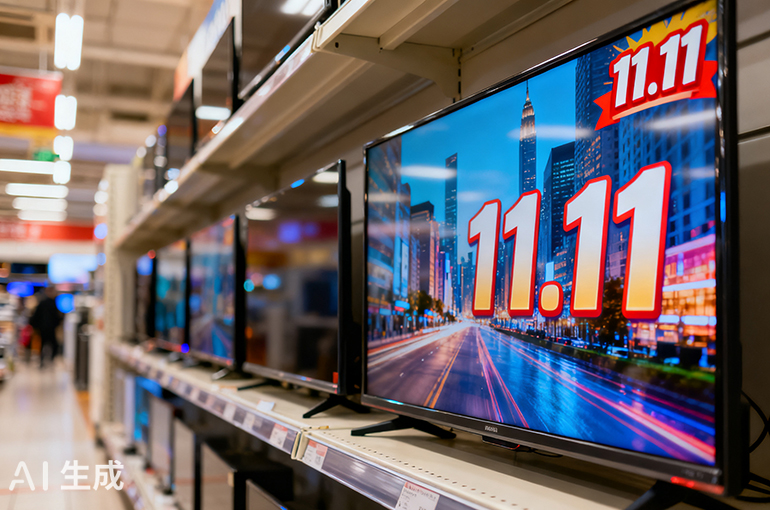Select Language:
Home appliance manufacturers in the country are lowering prices through corporate subsidies to secure market share during this year’s Double 11 shopping event, while others are focusing on enhancing service quality to retain customers, according to a recent market research report.
It’s unlikely that this year’s performance will surpass last year’s Double 11 results in the appliance market, as a report by AVC indicates. The report points out that sales across nearly all appliance categories experienced a significant boost last year due to the full rollout of national subsidies, which has set a higher baseline for comparison this year.
Since much of the national subsidy funding was exhausted in the first half of the year, both the scope and variety of subsidies available during this year’s Double 11 event have decreased, further making it difficult to achieve last year’s growth figures, and in some categories, sales have even declined compared to the previous year.
A distributor shared with this publication that after Xiaomi reduced its air conditioner prices and Gree Electric Appliances introduced more affordable models during mid-year online sales in June, numerous smaller brands also launched discount campaigns to increase their market share. This has driven prices back down to levels seen during last year’s subsidized sales.
Across multiple sales channels, the sales volume and revenue for air conditioners, fridges, washing machines, dryers, and TVs are expected to decline during this Double 11, though washing machines and dryers may experience milder drops, AVC forecasts.
A similar pattern is observed in cleaning and small household appliances. “It feels like there are no new tricks left in Double 11 anymore,” commented a marketing director from a kitchen appliance company. “It’s just a price war now,” they added. The fierce price competition extends to e-commerce platforms as well.
Through internal efforts to reduce costs and improve efficiency, Royalstar Group has managed to lower manufacturing and labor expenses by approximately 5 to 10 percent, according to customer service director Zhang Yong. The company intends to pass these savings directly to consumers through lower prices.
To attract shoppers, some brands are adding value-driven services. Gan Jianguo, GM of HarmonyOS Connect Meipont Intelligent Air Conditioner, revealed that his company is offering a 10-year warranty and free installation during Double 11 to incentivize purchases.
Others are trimming down non-essential smart features to decrease production costs and increase competitiveness. For example, a leading kitchen appliance brand, Fotile, partnered with JD.com to roll out a range hood with fewer extras, resulting in a lower price point aimed at attracting more buyers.
With limited room for further price cuts, big names like Midea and Hisense Home Appliances are exploring more efficient warehousing and distribution strategies to help retailers fine-tune logistics, boost customer experience, and secure market share, explained Liu Wenjuan, general manager at a major offline appliance retailer.
Given the high baseline from last year and the restricted availability of subsidy funds, many categories will likely see sluggish growth during this year’s Double 11, according to Peng Xiandong, GM of GfK China’s large home appliances division. However, promotional activities by platforms and brands are expected to continue stimulating consumer interest.
Peng also predicts that competition in the appliance industry will increasingly focus on premium products and service enhancements.







